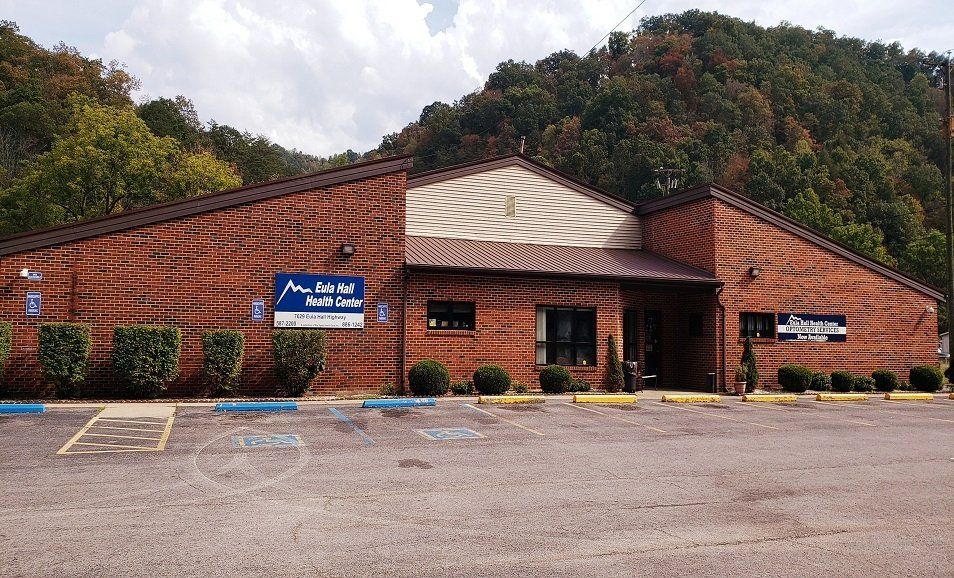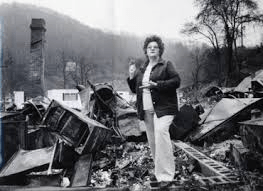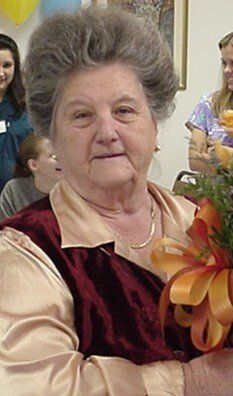Eula Hall: 50 years of service to the people of Mud Creek
The road to a healthy population is much like the actual roads in Appalachia – mountainous, curvy, narrow and difficult to navigate. Eula Hall was described as an angel, dynamite, a force to be reckoned with, and a living legend. More than 70 years ago, Hall saw a need for better health care in eastern Kentucky and devoted her life to that cause. Hall passed away on May 8th, 2021, at her residence in Craynor, Ky. She was 93.
Hall was born in 1927 and at the age of nine during the height of the Great Depression, Hall realized people were treated differently based on their economic status. Being from a poor family in Pike County, she saw the effects of not having health care. By her own account, she saw babies die from dysentery, young lives lost to tuberculosis, and her own mother almost bleed to death during childbirth. Through the years, Hall helped others by caring for the elderly, delivering medication and food, and driving people to the nearest hospital over 30 miles away. In the Mud Creek community of Floyd County, she was known as someone people could turn to when they were sick, hungry, or cold.
In the early 1970s, Hall spent much of her time pitching her idea of a local health clinic to politicians, health care providers, and donors. She dreamed of bringing quality health care to the people since it was so difficult to get the people to quality health care. In 1973, Hall opened the doors to the Mud Creek Clinic in Grethel. It wasn’t long before demand for those services outgrew the facility; so, Hall moved her own family into a two-bedroom mobile home and used her house as a clinic.
By 1977, Mud Creek Clinic joined forces with Big Sandy Health Care, Inc., a move that made the clinic eligible for federal funding. After the merger, Hall continued as a patient advocate; a role she held until she died.
Hall also helped create the Mud Creek Water District, which provides a safe water for residents who had long dealt with contaminated wells. She provided help with black lung compensation claims, disability claims, and Social Security and connected people to food, housing and medication assistance. While she was alive, Hall would represent her patients in court hearings if they couldn’t afford an attorney. She won about 90 percent of the cases.
Hall held an eighth grade education but was “exceptionally smart,” according to her son Dean, and received numerous honors and awards for her work, including four honorary doctorates. Her life as a “hillbilly activist” as she termed it, gained national recognition through the years. Her life was commemorated in a New York Times obituary in May 2021.
She had planned to return to the clinic after receiving her second dose of the COVID-19 vaccine. She had been working from home since the pandemic began in March 2020; however, she didn’t get the opportunity.
Lou Ellen Hall, a friend and coworker to Hall said, “She had both of her vaccinations and she said, ‘I’m coming back. You know, ‘cause it’s safe’. And she would have been back.”
Eula Hall did visit the clinic one last time when the hearse that drove her final resting place at Newsome Cemetery in Craynor stopped at 7629 Eula Hall highway and circled the clinic named for her.
Employees of Eula Hall Health Center described her as an inspiration. “It breaks your heart,” Lou Ellen Hall said, “But Eula’s done a wonderful service. And she did all God had her come here to do, and it was her time to rest.”




